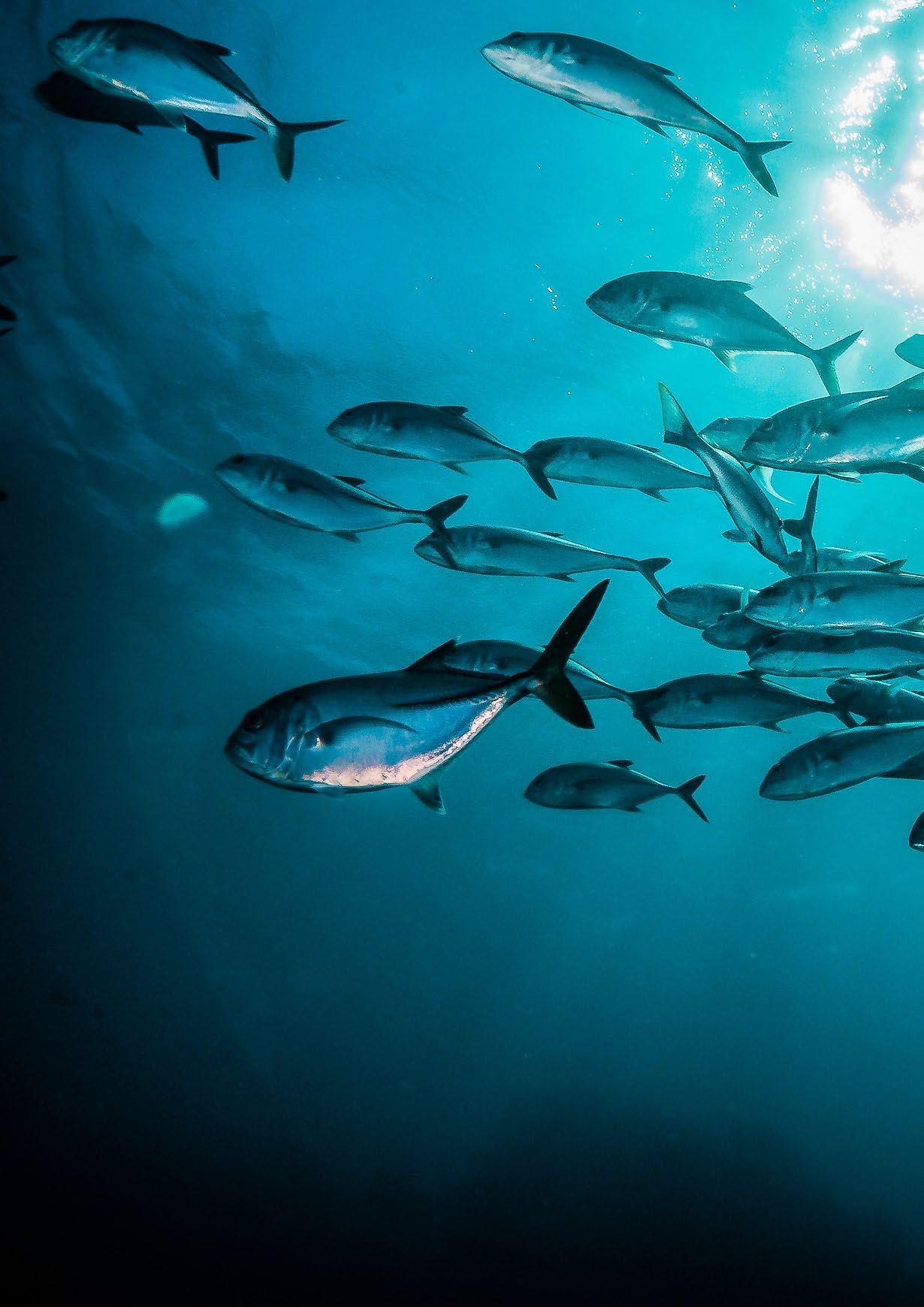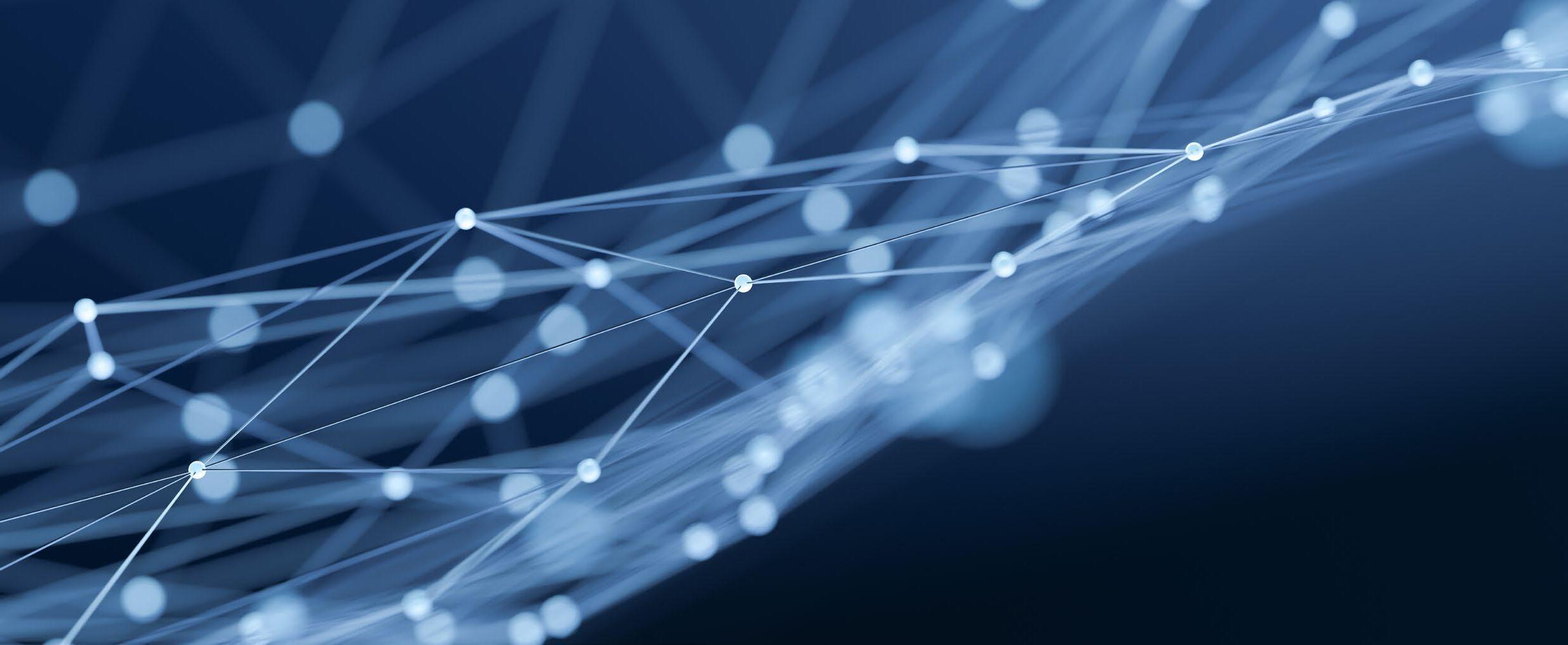
10 minute read
Innovative Technologies in the Oceans

Written By | DARBY BONNER
Advertisement
The ocean is a vast and mysterious place. With the advancement of technology, we now have the ability to explore and understand the ocean on a whole new level. Cutting-edge tools provide researchers and scientists with the ability to gather data and monitor the ocean in ways that were once impossible. These innovative technologies have the potential to revolutionise our understanding of the ocean and its impact on our planet.
How Clean Earth Rovers Is Innovating Water Cleanup & Combating Pollution In Our Oceans And Waterways With The Rover & Datapod Technology
Clean Earth Rovers is a company that strives to be innovative in the clean tech industry, whether that is in cleaning oceanic debris in an efficient and effective way, as well as gathering water quality data that can be used in many different ways like protecting marine life, human life, and knowing one’s waters to the most in-depth level.
Clean Earth Rovers is driven by motivated and passionate employees who have much experience in the business and engineering world, looking to solve real-world issues in the most productive way. Clean Earth Rovers’ mission is to collect oceanic plastic waste from marina/harbour scale waterways using autonomy and next-generation technology, while also collecting water quality data to track things like algae blooms, red tides, and other toxic chemicals which have been found to be incredibly deadly towards all types of life.
In most situations in the US, water is typically analysed through manual testing, or through extremely expensive equipment data receivers that are only able to collect a limited amount of data. Many times, these devices can only collect one to two samples of specific data, and they are limited in their capabilities to read multiple different samples of data that are in a body of water. For example, a water testing device may only be able to track one specific thing like PH levels or oxygen levels, rather than being able to track many different types of data combined into one single device.
Ocean-Cleaning Robot: The Rover

The rover is an autonomous marine vessel that skims the surface of the water to collect many different types of debris like trash, sticks, dead fish, oil, and much, much more.
The need for The Rover originally comes from the harm to marine life and the lack of services that are available to collect trash in bodies of water without using manpower. Clean Earth Rovers have found that many different types of businesses and municipalities struggle to maintain their waterways due to time constraints, lack of manpower, and overall costs associated with removing debris entering their bodies of water. Their solution gives these places the ability to collect not only trash, but many different types of debris without using any human power! The vessel has the ability to collect whatever is needed on its own by using the autonomous software that is built within the product. This technology is the first of its kind.
The DataPod
The DataPod is an advanced technological buoy that is able to collect many different types of water quality data. This device floats in a body of water, and over time collects these samples that will then show results on a personal device.
The need for the DataPod comes from the lack of resources and access to water quality data available to many different types of marinas, harbours, and municipalities. Not only are other data testing devices extremely hard to receive and expensive, but they are also insufficient in collecting many different types of data needed. With Clean Earth Rovers’ DataPod, anyone is able to not only collect basic water quality data like PH levels, oxygen levels, turbidity, and much more, but the DataPod will also be able to read the waters and notify of the hazards and pollutants that are dangerous to humans and marine that are near or within the water. It also has the ability to notify that there may be a red tide or algae bloom in the near future based on the data the device is receiving. With this device, harbourmasters and marine workers are able to know exactly what is happening below the surface of the water.
Clean Earth Rovers’ work strives to improve all aspects of preserving and protecting our waters. Not only are they able to remove the harmful waste and pollutants that are killing millions of marine life every year, but they are able to track these issues to be more prepared and help eliminate these problems faster than ever. Their devices are able to help us understand our waters and remove many different types of pollutants that cause harm to all life, using technologies that have never been seen before.
Learn more: cleanearthrovers.com

David Constantine - Co-founder & Chief Operating Officer of Clean Earth Rovers
How Aquatic Drones are Transforming Inshore, Harbour, Coast & Ocean-Survey Work With Their Latest Aquatic Innovation: The Phoenix 5

Aquatic Drones develop Autonomous Survey Vessels (ASVs) of different sizes to inspect and monitor the waterways, ports, coast, and ocean. Maarten is motivated to bring ecology and cost efficiency together in high-end innovative solutions. Working together with the government, research institutes, and industry partners towards impact is a big motivator.
The traditional way to analyse water in The Netherlands is to do it with a fixed sensor on a pole or with a manned vessel.
The Phoenix 5
The Phoenix 5 is a 5-metre ASV to survey water quality, Bathymetry, and asset inspection. The Phoenix comes in multiple sizes and comes from 4 main challenges: There is a growing need for data, sailing personnel and surveyors are more and more difficult to find, scaling up two or more times the data does not fit the current budgets to deploy more equipment and people, and finding net zero solutions - non-pollutive solutions are becoming mandatory in winning projects.
The Phoenix 5 is more environmentally friendly than typical survey work as it is fully electrical with no carbon output and no underwater noise. So far, the Phoenix 5 has been successful in rivers in The Netherlands (The Ijssel & The Keen), Ports and coasts in Rotterdam, Ijmuiden, and The Hague, The North Sea, and soon the Phoenix 5 will be deployed in the Atlantic Sea at Casablanca in Morocco.
Learn more: aquaticdrones.eu | youtube.com/@aquaticdrones9480

Maarten Ruyssenaers - Founder & CEO Aquatic Drones
Continued on page 16
Marinelabs is Protecting Coastlines with Real-Time Weather Intelligence

MarineLabs is a coastal intelligence company and real-time data provider, transforming marine safety, and building climate-resilient coastlines. Founded in 2017, they are a B.C.-based company offering the world’s highest resolution real-time wind, wave, and weather data as well as AI-driven insights from fleets of cloud-connected, rugged instruments. This data optimises port and vessel operations, and long-term data insights to help communities prepare and adapt for coastal flooding and other hazards due to sea level rise and climate-change-driven weather volatility.
Through their subscription service, CoastAware™, MarineLabs provides real-time wind and wave data that help port operators and vessel pilots make important decisions when bringing large ships into port. It also assists coastal engineers in assessing wave and wake conditions and their impact on planned marine infrastructure. Ports and vessel operators are using our data to ensure safe and efficient waterways, reduce the risks of marine accidents which may cause spills or cargo loss, and minimise wasted fuel through increased visibility into the most efficient routes.
In September 2022, MarineLabs’ CoastAware was used to gain accurate data on the effects of Hurricane Fiona and Hurricane Ian that tore through the region. Realtime data collected by the sensor buoys and accessed by Coast Guard, and allowed them to gain awareness of the storm’s effects along their coast in case they had to respond to an emergency during the storm. Additionally, measuring hurricane events allows MarineLabs to report on what actually happened and compare it to what was predicted to happen by forecasts. This is important because it provides validation that increases the accuracy of forecasts along coastlines.
MarineLabs collects and aggregates data over the years. This means an increase in new statistics about exposure, flood hazards, sea level rise, storm surge, and hurricane-driven weather risks along coastlines. This ensures that municipalities and coastal engineers who are designing coastal protection measures have the best possible data to make important decisions as it relates to their coastlines and coastal infrastructure. Since founding MarineLabs in 2017, Dr. Scott Beatty has grown the company from a startup into a reputable and profitable growth company. They are currently a diverse team of 15 full-time staff of engineering PhDs, Masters of data science, incredible ocean technicians, and ex-NASA employees who are focused on transforming marine safety and climate resilience with our technologies. Their technology is in use all along the Canadian Pacific and Atlantic coastlines.
Although Canada has the longest coastline in the world, it operates only 41 real-time weather buoys, roughly 1 station per 1000km. This data scarcity exposes coastal communities and industries to undue short-term risks of marine accidents and to long-term climate-change-driven weather volatility and coastal flooding.
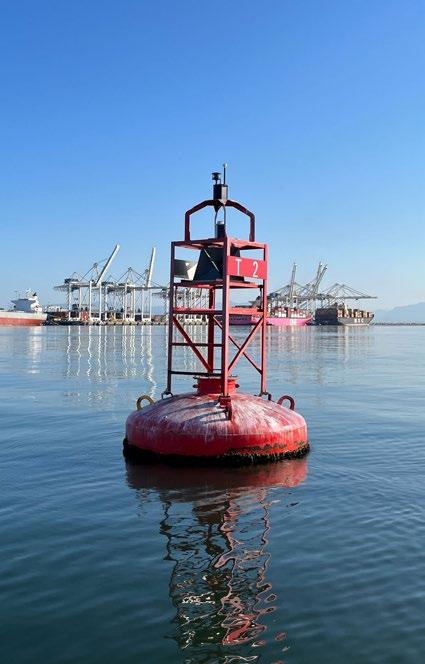
CoastAware
CoastAware is MarineLabs’ proprietary technology that is powered by extremely high-resolution data from fleets of small, solar-powered, durable, self-contained, cloud-connected sensor units that bolt onto anything that floats. CoastAware provides real-time wind, wave, camera, and other data as a subscription service, freeing the customer from the hassles of buoy deployment and maintenance, and is available on any device.
There are vast regions of global coastlines that are data voids, which puts coastal environments at risk of marine accidents, and while weather volatility and sea-level rise increasingly threaten coastal communities, accurate data is needed to help build the infrastructure for coastal protection. MarineLabs data fills the data voids, is more frequently updated, and provides 5MB of data, whereas other technologies offer just 5 bytes. It is a cloud-based platform that provides reliable real-time and long-term data to subscribers exactly where and when they need it. Sensor units can be deployed rapidly, meaning clusters of sensor locations can be set up in critical regions ensuring there is always a backup data source.
Learn More: marinelabs.io/coastaware
BuoyCam
CoastAware BuoyCam is the first scalable, end-to-end ocean camera data product. The service provides subscribers access to 360-degree, near-real-time views of ocean conditions through images from sensor locations along coastlines. The new weather awareness data point improves the way search and rescue, harbour masters, and vessel pilots understand current weather conditions. The product helps users confidently and safely navigate using a visual reference to better understand surroundings like fog, debris in the water, and rough conditions. The BuoyCam module integrates with all MarineLabs hardware models that are rapidly deployable on existing navigational aids.
The CoastAware BuoyCam service is currently in 16 beta testing locations along Canadian coastlines, in both the Atlantic and Pacific regions. The $1.1M trial with the Canadian Coast Guard is being funded through the Innovative Solutions Canada (ISC) Test Stream for a year. This is the first scalable, end-to-end, buoy-mounted camera data product on the market. While some costly, large, legacy buoys do have cameras, they experience downtime issues and are costly to maintain because they require specialised ships in order to deploy and maintain them.
Learn more: marinelabs.io/product-buoycam
Scott Beatty - Founder & CEO MarineLabs
“Stop overthinking how big your impact is on this world, start acting from your very own backyard, and be persistent in it.”
Pascal Sebastian - Lead Marine Biologist for Indo Ocean Project
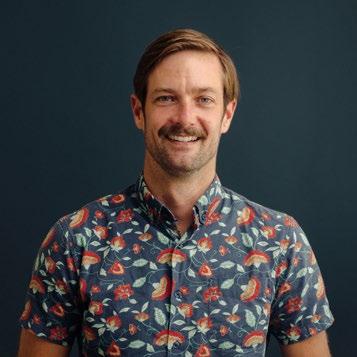
“The World’s Ocean is a vast and immensely beautiful ecological life force, a critical player in the global climate, a powerful energy and food source, a global highway, and a near-infinite recreational area. It is the life-blood of human societies. I am dedicated to building, deploying, and operating technologies that protect Earth’s oceans and coastlines, I strongly believe this work is making a difference in Canada, and we will make a difference along all coastlines.”
Dr. Scott Beatty - Deep-tech Entrepreneur and the Founder & CEO of MarineLabs
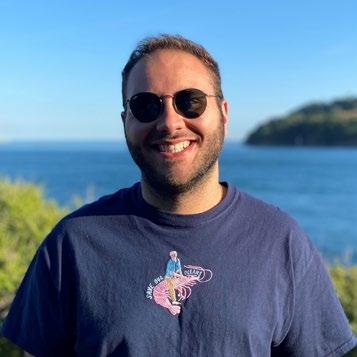
“It’s not one person’s responsibility to protect the lungs of the planet, it’s all of ours. We need to urgently protect and restore ocean habitats, reduce the impact of climate change, fish responsibly, and consume consciously. There is so much left worth protecting!”
“Our ocean is precious and far too often taken for granted. We need firm action from Governments on their commitments made both at home, and internationally, to protect our marine environment by reducing damaging fishing practices, stopping avoidable ocean pollution and implementing strong marine protected areas to allow habitats and biodiversity to thrive.”
“I believe it still comes down to shifting society’s relationship with our ocean; the more people can find the ocean relevant to their livelihood, the better chance they will care about their impact on it.”

Shellby Johnson-Rodney - Outreach & Communications Specialist - NOAA: National Oceanic & Atmospheric Administration


“No blue no green, no ocean, no us – we have zero chance of mitigating the effects of the climate crisis and ensuring food security without a healthy & thriving marine ecosystem, so we must do everything in our power to restore, regenerate and protect our oceans for humanity’s survival.”
Chris Gorell Barnes - Co-Founder and Founding Partner - Ocean 14 Capital and The Blue Marine Foundation
“What if your business model was centered around regenerating the ocean? Only a few years ago, many people would have rolled their eyes at this statement. Today, I am inspired by the conversations I’m having with incredible entrepreneurs who lead their companies with the mission of safeguarding our oceans. Startups are essentials in rapidly bringing innovation to the table and disrupting the status quo. Tides are indeed changing, and for the best.”
Marianne Brisson - Host - Seaze Podcast

“We are fortunate to live alongside Morecambe Bay, a vitally important feeding & breeding ground for threatened birds like the Lapwing, Curlew & Eider which travel huge distances to visit our shores. A healthy marine environment is crucial to the survival of nature and people and World Oceans Day is an opportunity for us to reflect locally on the importance of our global oceans in all our futures.”
Sarah Mason - CEO - Morecambe Bay Partnership
“Canada is becoming the best place in the world to start and grow a sustainable ocean company, I’m consistently encouraged by the number of ideas, startups and applied research projects that focus on ocean health and regeneration. We have a lot of innovating left to do to restore our oceans and planet, but as the World Oceans Day theme states, tides are changing.”
Donald Grant - Executive Director - Ocean Startup Project

At Mocean, we are developing devices that convert the energy in ocean waves into electricity: to complement existing renewable grids, to bring renewable and reliable energy to remote coastal communities, and to feed offshore equipment with locally generated power. All within a vision of sustainable progress and a renewed connection to the sea.”
Andrea Caio - Business Development Manager - Mocean Energy




